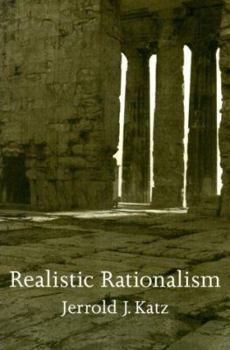Realistic Rationalism
(Part of the Representation and Mind Series Series)
Select Format
Select Condition 
Book Overview
In Realistic Rationalism , Jerrold J. Katz develops a new philosophical position integrating realism and rationalism. Realism here means that the objects of study in mathematics and other formal sciences are abstract; rationalism means that our knowledge of them is not empirical. Katz uses this position to meet the principal challenges to realism. In exposing the flaws in criticisms of the antirealists, he shows that realists can explain knowledge of abstract objects without supposing we have causal contact with them, that numbers are determinate objects, and that the standard counterexamples to the abstract/concrete distinction have no force. Generalizing the account of knowledge used to meet the challenges to realism, he develops a rationalist and non-naturalist account of philosophical knowledge and argues that it is preferable to contemporary naturalist and empiricist accounts. The book illuminates a wide range of philosophical issues, including the nature of necessity, the distinction between the formal and natural sciences, empiricist holism, the structure of ontology, and philosophical skepticism. Philosophers will use this fresh treatment of realism and rationalism as a starting point for new directions in their own research.
Format:Paperback
Language:English
ISBN:0262611511
ISBN13:9780262611510
Release Date:January 2000
Publisher:MIT Press (MA)
Length:264 Pages
Weight:0.65 lbs.
Dimensions:0.6" x 6.0" x 9.0"
Age Range:18 years and up
Grade Range:Postsecondary and higher
Customer Reviews
0 rating





